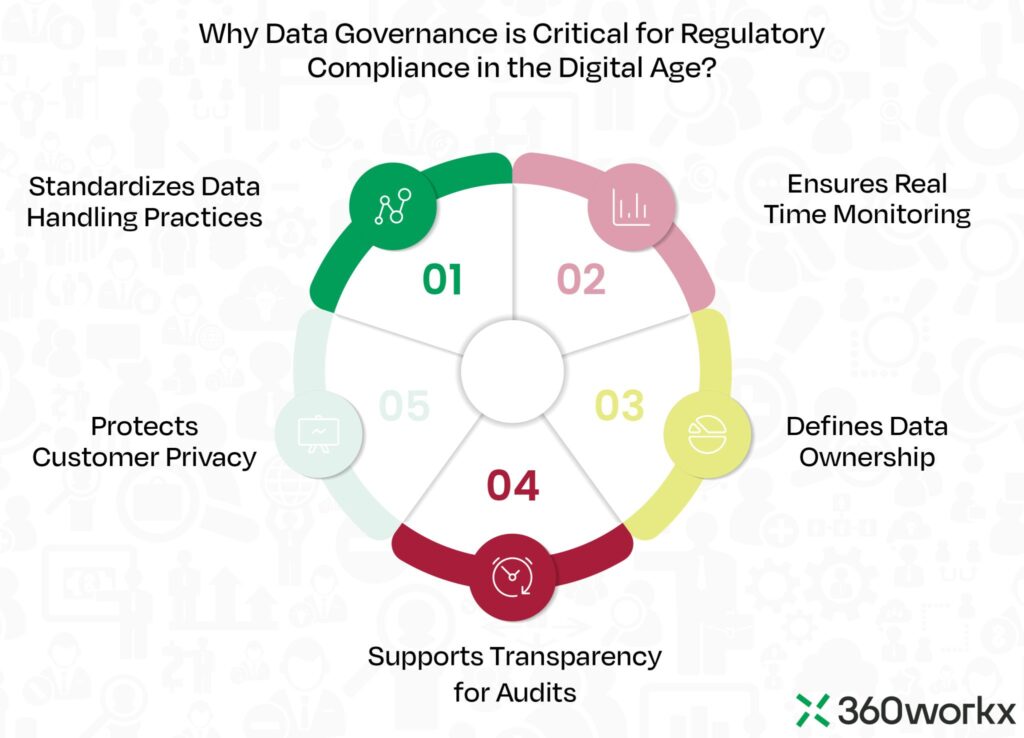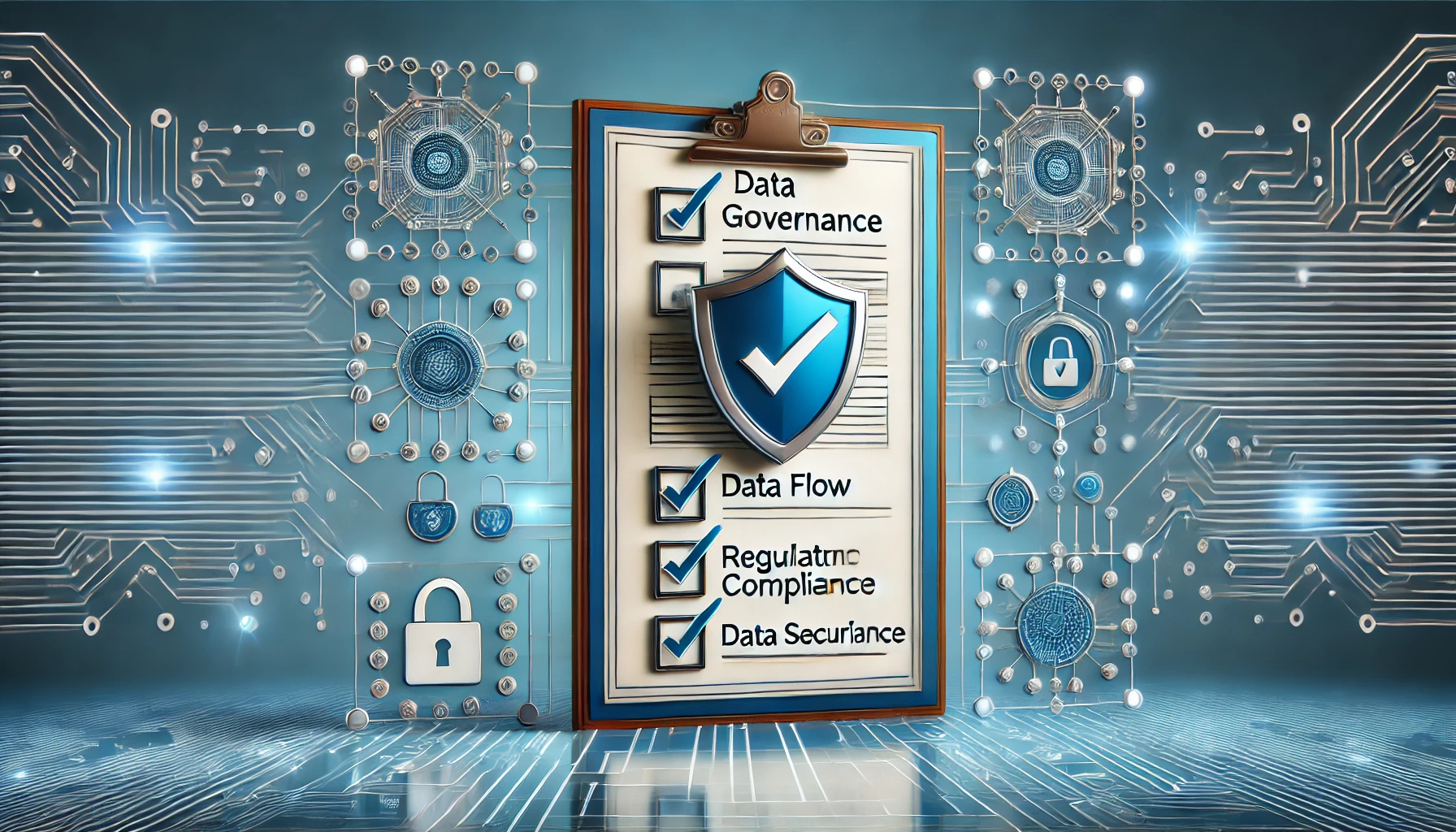In today’s digital landscape, organizations manage vast amounts of data that are subject to evolving regulatory requirements. As compliance frameworks such as GDPR, the revised Swiss Privacy Law (nFADP), CCPA, and other regional privacy laws become more stringent, businesses must implement robust data governance strategies to mitigate legal risks and operational inefficiencies. Effective data governance not only ensures compliance but also strengthens data security, improves business efficiency, and enhances customer trust.

1. Standardizes Data Handling Practices
Data governance frameworks provide organizations with standardized policies and procedures for managing data. By implementing clear data classification, retention schedules, and handling protocols, organizations can ensure that data is consistently processed, stored, and deleted in compliance with legal requirements. This standardization reduces the risk of inadvertent violations and enhances overall data quality.
2. Ensures Real-Time Monitoring
Regulations frequently evolve, requiring organizations to adapt quickly. A robust data governance framework enables real-time monitoring of data assets and regulatory changes. By leveraging automated tools, businesses can track data flows, identify anomalies, and implement corrective actions proactively. This real-time oversight is crucial for maintaining compliance and avoiding hefty penalties associated with non-compliance.
3. Defines Data Ownership and Accountability
One of the key components of data governance is establishing clear data ownership roles. Assigning responsibility to specific individuals or teams ensures accountability for data protection and regulatory compliance. Clearly defined roles for Data Protection Officers (DPOs), compliance officers, and IT administrators streamline the enforcement of governance policies and enhance the organization’s ability to respond to compliance audits.
4. Supports Transparency for Audits
Regulatory audits require businesses to demonstrate compliance with data protection laws. A well-structured data governance framework simplifies compliance reporting by maintaining detailed audit logs, data lineage records, and access control mechanisms. This transparency not only facilitates smoother audits but also reinforces stakeholder confidence in the organization’s commitment to data privacy.
5. Protects Customer Privacy and Builds Trust
Data privacy is a fundamental concern for consumers. Implementing data governance ensures that personal and sensitive data are handled with care, reducing the risk of breaches and unauthorized access. Organizations that prioritize data governance align with privacy laws and demonstrate their commitment to protecting user information, thereby building customer trust and loyalty.
Conclusion
In the digital age, data governance is no longer optional—it is a critical necessity for regulatory compliance and risk management. By standardizing data handling, enabling real-time monitoring, defining ownership, ensuring audit readiness, and protecting customer privacy, organizations can confidently navigate complex regulatory landscapes. Investing in robust data governance frameworks not only helps organizations meet compliance requirements but also fosters long-term success by enhancing data security and operational efficiency.

